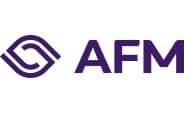This news is older than 3 years. Therefore it is possible that the information is no longer valid.

Supervisory Boards have impact, but differences between audit firms exist
Supervisory boards of PIE audit firms have impact on the preconditions for quality and may reduce vulnerabilities in the structure of the audit sector. The extent to which differs per supervisory board, partly due to challenges in the governance. This is apparent from an assessment by the Dutch Authority for the Financial Markets (AFM).
In brief
- Vulnerabilities in the structure of the audit sector can hinder quality
- Independent internal supervision via a supervisory board at PIE audit firms has been mandatory since 2018
- The supervisory boards (SBs) have impact
- There are differences in the impact of supervisory boards, partly due to challenges in governance
- Assessment provides insights
Vulnerabilities in the structure of the audit sector can hinder quality
There are vulnerabilities in the structure of the audit sector. These can arise due to an imperfect functioning of supply and demand as well as due to harmful incentives in the revenue model and the business model. These prevent or impair good and consistent quality of statutory audits.
Independent internal supervision via a supervisory board at PIE audit firms has been mandatory since 2018
The supervisory board supervises, among other things, the way in which the board of directors focuses on the quality objectives and achieves those as well as whether their decision making is in the public interest. This can help to reduce the effects of vulnerabilities in the structure of the accountancy sector.
The supervisory boards have impact
The assessment shows that supervisory boards have impact. For example, to a greater or lesser extent, supervisory boards stimulate the agenda-setting and quality management, the improvement of quality controls. They also draw attention to the development and leadership of auditors.
Differences in impact, partly due to challenges in governance
The impact differs per firm and is partly dependent on the governance in which supervisory boards function. For example, they must deal with the influence of the partner shareholders, who are both employees and shareholders of the audit firm. They also must deal with the influence from the international network of which the audit firm is a member.
Assessment provides tools
The inspection uses practical examples to show how the supervisory boards of the six PIE audit firms operate. In this way, the AFM offers insights for further shaping internal supervision. These lessons are also important in the light of the proposed bill for the future audit sector, which proposes mandatory supervisory boards for larger non-PIE audit firms as well.
Journalists can contact spokesperson Daniëlle de Jong via danielle.de.jong@afm.nl or via 020-7972129
Contact for this article

Would you like to receive the latest news from AFM?
Subscribe to our newsletter, we will keep you up-to-date.